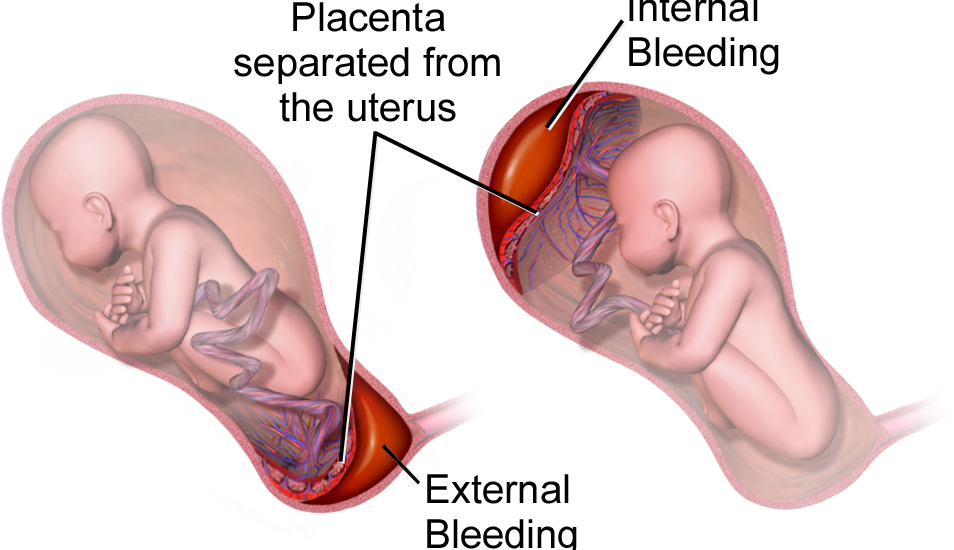Premature placenta detachment from the uterine wall is known as placental abruption or abruptio placentae. It is a dangerous complication that puts the mother and the unborn baby at risk. Thus, continuous monitoring of the pregnancy is necessary to identify any indications of placental abruption. If you or someone you know needs a consultation for managing placental abruption in Pune, don’t hesitate to consult Dr Tejas Tamhane, a renowned fetal medicine specialist.
Managing Placental Abruption In Pune: An Overview
A rare but serious pregnancy condition known as placental abruption, or abruptio placentae, happens when the placenta partially or completely separates from the uterine wall before delivery. Should this happen, the fetus may not get enough oxygen and nourishment. The mother can also experience some discomfort and bleeding. Placental abruption can cause intrauterine growth restriction, premature birth, or stillbirth in more severe cases.
The placenta usually stays attached to the upper part of the uterus until the baby is born. It has various functions including the removal of waste from the baby’s circulation and providing the fetus with oxygen and essential nutrients through the umbilical cord.

Signs And Symptoms of Placental Abruption
Placental abruption is more prone to happen in the later trimester of pregnancy, particularly in the final weeks before delivery. Signs and symptoms can include:
- Vaginal bleeding
- Abdominal pain
- Backache
- Uterine tenderness
- Uterine contractions

However, in some cases, there may be no visible symptoms at all, making early detection crucial for timely management and intervention.
Role of Specialised Sonography In Detecting Placental Abruption
There are various specialised prenatal imaging techniques, particularly Ultrasound and Doppler scans, that play a key role in the early detection of signs of placental abruption. These scans allow fetal medicine specialists to assess the placenta’s position, the blood flow and other factors that may indicate a risk of placental detachment. Early detection can improve maternal and fetal outcomes by facilitating timely interventions.
01. Ultrasound Scans / Sonography
The most commonly used imaging technique, ultrasound scan is crucial in evaluating placental health. In case of placental abruption, an ultrasound can identify early separation of the placenta from the uterine wall.
Ultrasound scan offers a clear view of the placenta’s location and shows if there’s any sign of premature detachment. During a routine scan, your fetal medicine specialist can detect signs of bleeding between the placenta and the uterine wall. In some cases, bleeding may not be visible externally, but it can be detected on the ultrasound scan. In severe cases, an ultrasound can also show the formation of hematomas that can form between the placental and the uterine wall.

02. Doppler Ultrasound
A specialised type of ultrasound, the Doppler scan measures blood flow within the placenta and the umbilical cord. This scan can assess the adequacy of blood supply to the baby. In the case of placental abruption, the blood flow may become restricted or irregular, indicating problems with placental health.
Doppler ultrasound allows the doctor to monitor the baby’s condition and check whether the placenta is providing enough nutrients and oxygen. Doppler scan is particularly important in cases where there may be concern about fetal growth or compromised oxygen levels, both of which are connected to placental abruption.
(Also Read: Twin to Twin Transfusion Syndrome in Pune – Dr Tejas Tamhane)
Early Detection and Management of Placental Abruption In Pune
Effective management of placental abruption depends on early detection. If detected, the doctor will keep a closer eye on the pregnancy and check for any indications of distress in both the mother and the unborn baby. Early delivery may be required in certain situations to lower risks for the mother and the fetus, particularly if the condition is severe or the baby is at term.
The mother may be instructed to rest and the pregnancy may be monitored with routine scans if the abruption is moderate and the baby is not in distress. More serious situations could necessitate hospitalisation for the mother and the use of interventions including blood transfusions or emergency caesarean sections.
Managing Placental Abruption In Pune
Despite being a potentially risky condition, placental abruption can be efficiently managed with the use of specialised scans that can identify early indications. If you’re expecting, it is crucial to mention any unexpected symptoms to your doctor and to attend routine prenatal checkups. Both the mother’s and the baby’s health and well-being can be greatly improved by early identification.
If you or your loved one wants a consultation on managing placental abruption in Pune, contact Dr Tejas Tamhane, a well-known fetal medicine specialist.

